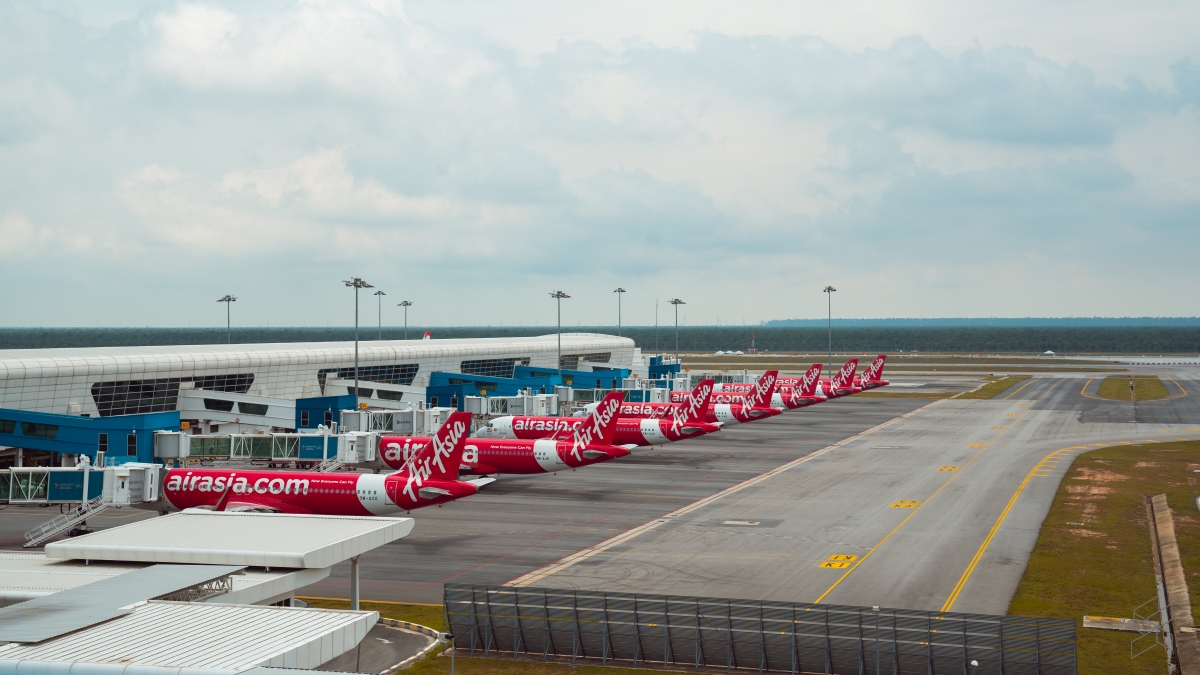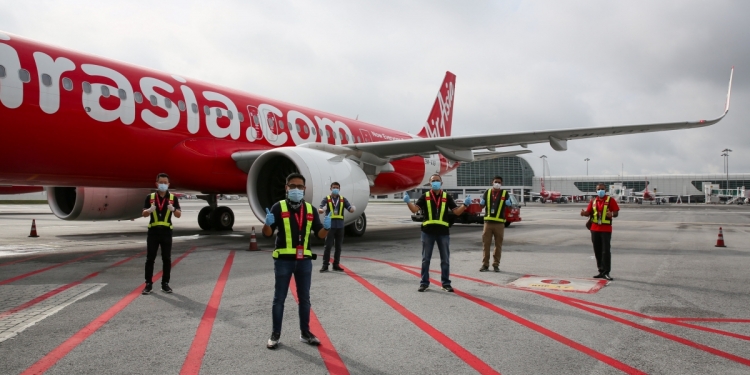As announced earlier, AirAsia has resumed its domestic flights within Malaysia starting today. The low-cost carrier also aims to resume domestic flights in other markets such as Thailand (1st May 2020), Indonesia (7th May 2020) and the Philippines (16th May 2020) subject to approval from the authorities.
The resumption of services will initially be for key selected domestic routes. The airline will gradually increase to more international destinations around the region once the situation improves and government lift borders and travel restrictions.
AirAsia says they are working closely with all relevant regulators, local governments, civil aviation and health authorities, and it adheres to guidance from the World Health Organisation (WHO) and International Civil Aviation Organisation (ICAO) to ensure that the highest standards of compliance and conformance are in place for every single flight.

As outlined in its guidelines, all AirAsia guests are required to wear a face mask and practise precautionary measures including social distancing and observing high personal hygiene. Hand carry luggage is limited to one piece up to a maximum of 7kg per passenger. It is only allowed to be stored under the seat in front of you to minimise contact. Any bulkier or heavier luggage must be checked-in.
To reduce the risk of infection, its aircraft will be sent for thorough disinfection at every night stop and it is equipped with hospital-grade High-Efficiency Particulate Air (HEPA) filtration system. The HEPA system is designed to filter 99.999% of dust particles and airborne contaminants.
AirAsia Group Executive Chairman Datuk Kamarudin Meranun said “Flexibility remains the key to our business model. Our strong foundation coupled with robust relationships with suppliers and partners has enabled us to return to service stronger amid these unprecedented challenging times.” He added that AirAsia is not intending on taking any new aircraft deliveries this year with the target to end 2020 with 242 aircraft, which is a net reduction of 1 aircraft from last year. The airline is relooking at its order book with Airbus.
The Executive Chairman also shared that its decision to sell and lease its aircraft in late 2018 has provided the group with greater flexibility to scale back growth than owning aircraft today. The move also allowed the airline to lock the best price for those aircraft at prime market conditions while eliminating the residual risk of owning aircraft.
With the current oil price uncertainty, AirAsia has also restructured a major portion of its fuel hedges and it is still in the process of restructuring the remaining exposure. The restructuring will help the company deal with the excess of hedged volume against the expected fuel consumption post-COVID-19 and to reduce losses if the fuel price remains at today’s prices.
In addition, the management and senior employees of AirAsia Group have taken a voluntary salary cut as well as re-negotiating contracts and deferring all non-essential expenditures. The initiatives are expected to reduce cost by at least 30% YoY in 2020.
[ SOURCE ]








